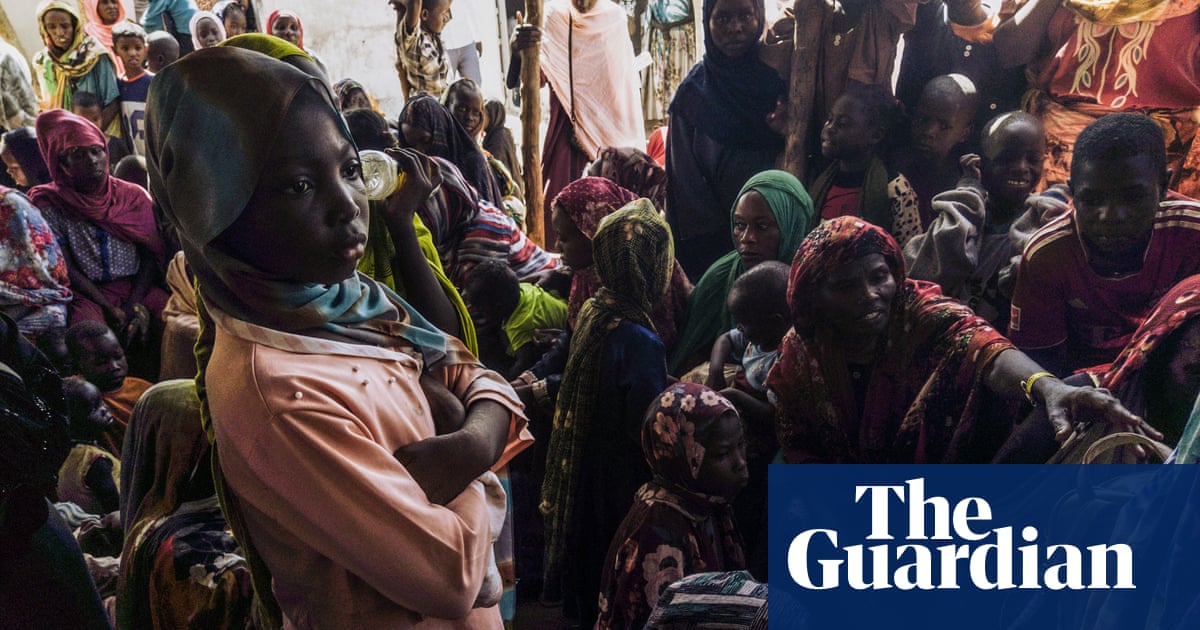—
In the heart of Sudan’s capital, amidst the bustling city life, Dr. Mohamed Eisa, a Pittsburgh-based gastroenterologist, found himself in the midst of rising tensions.
Having returned to Khartoum to lay his father to rest, he couldn’t help but notice the ominous signs of conflict brewing – pickups laden with armed men roamed the streets, hinting at the growing strife between the nation’s military factions and the Rapid Support Forces (RSF) paramilitary group.
The outbreak of violence on that fateful Saturday in April seemed inevitable, yet Eisa harbored hope for a swift resolution.
Given Sudan’s strategic importance, bordered by nations of global interest, he believed international powers would quickly step in to defuse the situation.
Yet, expectations crumbled as the conflict escalated, plunging the country into a prolonged war that has since claimed thousands of lives and led to a humanitarian crisis described by the UN as the largest displacement scenario in the world today.
Civilians find themselves trapped amidst the chaos, with infrastructure decimated and poverty rates soaring.
Both warring sides stand accused of egregious human rights violations, with emerging reports suggesting the RSF might be replicating the atrocities of Darfur’s dark past.
This turmoil represents a bitter setback for a nation that, not long ago, seemed poised to shed its history of dictatorship following the ousting of Omar al-Bashir in 2019.
The Sudanese diaspora, notably sizable in the United States and the United Kingdom, watches in despair as their homeland spirals further into conflict.
Activists like Virginia’s Ibrahim Babiker, initially driven by democratic aspirations, now find themselves in a race against time to deliver basic necessities to those cut off by the fighting.
With seven million people displaced and an estimated death toll surpassing 12,000, the international community faces a critical challenge.
The war has ravaged Khartoum, transforming it from a bustling capital to a battleground littered with casualties, destroyed homes, and a crippled infrastructure.
Bashair Ahmed, CEO of Shabaka, stresses the unprecedented nature of this conflict and the complexities it introduces in delivering aid.
Many displaced citizens have sought refuge in Wad Madani, only to flee once more as the RSF advanced.
Eisa, now back in the U.S. and serving as the secretary general of the Sudanese American Physicians Association, emphasizes the dire state of Sudan’s healthcare system amidst the war.
However, the global attention and aid crucial for Sudan’s survival seem to wane as new crises emerge, notably the Israel-Hamas conflict in Gaza and the ongoing war in Ukraine.
Despite these competing global crises, the plight of Sudan remains urgent.
The international response falls short, with funding for the humanitarian crisis in Sudan drastically underprovided.
Accusations of war crimes and ethnic cleansing compound the tragedy, prompting sanctions from the U.S. against key figures in the conflict.
However, the absence of a dedicated U.S. special envoy to Sudan marks a significant gap in addressing the crisis effectively.
Efforts to appoint such an envoy gain momentum among U.S. lawmakers, reflecting a growing recognition of the need for focused action on Sudan.
The international community, while grappling with multiple crises, must remember the profound suffering and resilience of the Sudanese people, who question why their plight seems forgotten amidst global turmoil.
As discussions continue and resolutions are proposed, the people of Sudan await meaningful intervention.
The story of a displaced mother questioning the world’s priorities echoes the broader sentiment of a nation yearning for peace and stability.
Sudan’s cry for help, amidst the cacophony of global crises, calls for an urgent, compassionate response that cannot afford to be overlooked.
